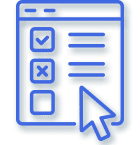What does an Addiction Counselor in Utah do? What is Their Job Role?
Utah’s laws covering a substance use disorder counselor SUDC professional, including substance abuse counselors, are unique in some respects. This state has established more categories for its Utah substance abuse counselors, based on education, experience and clinical supervision.
Compare Popular Online Substance Abuse Counseling Programs
Overview
Licensed or certified Utah substance abuse counselors are required to show proof that they satisfactorily meet all requirements for licensure. The only category where an applicant for licensure can receive a temporary license are substance abuse professionals holding advanced degrees with deficiencies in coursework—they can practice under an “externship” license, which must be replaced with a full license once they have made up the deficiency.
Just as with other states, Utah requires every substance use disorder counselor SUDC to receive clinical supervision from a qualified clinical supervisor.
Continuing education and renewal of licenses are also required by this state. Failure to do so means the counselor will be legally unable to work with clients.
Utah Licensing & Certifications for Associates & Independent Counselors

In Utah, six categories divide substance abuse counselors, based on education and experience. Depending on the degree you received from an accredited college or university, you may be called a certified substance abuse counselor, certified substance abuse counselor/intern or a licensed substance abuse counselor. You may qualify for one of three advanced categories. These are the certified advanced substance abuse disorder counselor intern, certified advanced substance abuse counselor and licensed advanced substance abuse disorder counselor. Both intern qualifications are intended for those license applicants who have not yet taken their licensure exams.
If you are an intern, you’ll have different educational, licensure and clinical supervision requirements from the certified or licensed substance abuse counselors. You’ll also be limited in the level of counseling and interaction you’ll have with clients.
In Utah, a substance use disorder counselor SUDC will have to take continuing education classes (just as in every other state). They also have to renew their licenses by the last day of May in odd-numbered years. Utah approves licensure by endorsement if you worked as a substance abuse counselor in a different state, as long as your license is in good standing. You’ll also have to show proof of having met a few other requirements established in state law. A substance use disorder counselor holding either a master’s degree or doctoral degree can practice under a temporary externship license if they have a deficiency in their coursework.
Education Requirements

College students planning to major in substance use disorder treatment, including substance abuse counseling, must take two prerequisite courses, including general psychology and human lifespan development. If you are in community college, you’ll have to earn an associate’s degree with 60 semester credit hours from an accredited educational institution. This accreditation should be provided by the Council for Higher Education Accreditation of the American Council on Education or CHEA.
After receiving your initial license to practice as a Utah substance abuse counselor, you’re required to continuing taking education courses which will be applied to your license renewal applications. (If your license was lapsed, the only way to reinstate it is to take the required number of CE hours and show documentation of such.
Utah requires a substance use disorder counselor to take 40 hours of continuing education coursework. This must relate directly to your professional practice. Specifically, six of the required 40 CE hours should cover professional responsibilities and ethics.
CACREP Accredited Online Certification

Two types of accreditation are recognized in the United States; institutional and specialized. Institutional accreditation takes the entire institution into account while the specialized focus on professional preparation programs. The Council for Accreditation of Counseling and Related Educational Programs (CACREP) is a specialized accreditation that focuses on master’s and doctoral degree programs in counseling at colleges and universities worldwide. Only already-accredited institutions are eligible for CACREP review. The review for accreditation will center on programs offering graduate degrees in counseling.
Choosing a CACREP-accredited program ensures that the program meets the highest of quality standards. Many counseling specialties are accredited bythe CACREP, including addiction counseling. Accredited addiction counseling programs prepare individuals to work with those affected by addictive behavior and their families. Addictive behaviors include alcohol, drugs, food, gambling, sex, and anything else that negatively affects your personal or work life by creating addiction behaviors.
CACREP-accredited programs will focus on treatment models and the phases of addiction including prevention, recovery, and relapse prevention. These 60-semester hour programs will include the application of interventions. When students choose a CACREP-accredited program they can be confident that:
- the program meets or exceeds national standards
- the program will focus on professional counseling rather than psychology oreducation
- the program has an excellent reputation
- CACREP graduates statistically receive higher scores on the National Counselor Examination for Licensure and Certification (NCE).
- the requirements for licensure will be met.
Department of Commerce
Division of Occupational and Professional Licensing (DOPL)
The Division of Occupational and Professional Licensing (DOPL) is a regulatory branch of the Utah Department of Commerce. Although DOPL no longer administers substance use disorder counselor licensure exams, the Division does offer renewals and continuing education information. Utah now requires the NCMHC examination, provided by The National Board for Certified Counselors (NBCC), for licensure.
Address
P.O. Box 146741
Salt Lake City, UT 84114-6741
Phone
(801) 530-6628
(866) 275-3675 (Utah toll-free number)
Website Address
https://dopl.utah.gov/cmhc/index.html
Licensure:
- Clinical Mental Health Counselor (CMHC)
- Associate Clinical Mental Health Counselor (ACMHC)
Counselor Testing & Examination Process

Every candidate for licensure has to show proof of experience. Exam requirements for the certified advanced substance disorder counselor and the advanced substance disorder counselor must take the written NAADAC National Certification Exam, either at Level II or MAC, receiving the minimum criterion score established by NAACAC. Or, you can take the written ICRC Advanced Alcohol and Drug (AADC) exam, again scoring at least the minimum criterion score established by ICRC.
Find Your Online Addiction Counseling Program
Certified substance disorder counselors or substance disorder counselors have to take the written NAADAC or ICRC AADC exam, receiving the minimum score.
Clinical Supervision Explained
An advanced substance use disorder counselor must receive 4,000 hours of supervised experience and show proof of this. This supervision should be at a ratio of one hour of face-to-face direct supervision to every 40 hours of substance use disorder counseling supervision.
Supervised experience can only be completed under the direct supervision of an advanced substance use disorder counselor or advanced substance use disorder treatment therapist, unless the counselor has requested and received approval for supervision from another otherwise-qualified supervisor. Clinical supervisors should hold specific qualifications, including education or experience in treating substance use disorders, currently working in the substance use disorder treatment field and reviewing substance use disorder counselor assessment procedures and recommendations. Clinical supervisors should also be able to offer substance disorder diagnoses, as well as other advanced substance use disorder treatment diagnoses (co-occurring disorders). Your clinical supervisor has to supervise as you develop treatment plans for your clients, approving them for you.
By Utah law, clinical supervisors cannot supervise more than five counselors, unless they are given an exception in writing from the Board and division.
Supervisors who provide clinical supervision for certified substance disorder counselors, interns, certified advanced substance disorder counselors and advanced interns or licensed substance abuse disorder counselors must be licensed advanced substance disorder counselors, have a minimum of two years of experience as licensed advanced substance disorder counselors and currently work in the substance disorder field. Supervisors at this level are required to supervise no more than three counselors, unless they receive an exemption from the Board and division.
Substance abuse counselors are required to accumulate 2,000 hours of supervised work experience in substance abuse disorder treatment development across the lifespan. This experience should focus on providing substance use disorder counseling services.
Clinical supervisors are required to meet the qualifications that were established by Section 58-60-608 under Utah law.
Renewal and Continuing Education

Your license to practice substance abuse counseling expires at midnight on May 31st in every odd-numbered year. Utah law requires its substance abuse counselors to undergo a set number of education hours. These must be documented by certification of completing the courses. You need to submit copies of these certificates as proof that you took your required CE courses. If you don’t provide this proof, your license will expire.
The state division that oversees the licensing of advanced substance use disorder treatment professionals and substance abuse counselors can shorten or extend a renewal cycle development across the lifespan. This shortening or lengthening can be up to one year, so renewal cycles can be staggered.
Utah substance abuse counselors at all six levels are required to participate in 40 hours of continuing education that directly pertains to their professional practice.
To make it easier for you to choose CE courses, they should meet these standards:
Make a clear statement of purpose with a defined objective;
Presentation must be well-organized and sequential, complying with the purpose of the program;
Proven relevance to your professional practice;
Preparers and presenters should be qualified by education, experience and training;
Registration method allows you to begin and complete the program;
Records of registration and documentation of course completion should be available for review;
Credits for CE courses should be recognized as follows:
Unlimited CE hours will be accepted in time blocks no shorter than 50 minutes, in formally established seminars, classroom courses, services, institutes or workshops;
A max of ten hours for every two-year period may be recognized for testing within college or university setting, or teaching CE courses in the substance abuse field;
A maximum of 15 hours in a two-year period can be recognized in distance learning, internet-based courses or clinical readings that are related directly to practice as a substance abuse counselor;
You are responsible for maintaining comprehensive records of completed CE for four years after the completion of the two-year period tow which the records pertain. You must maintain all of this information with respect to continuing education so as to prove that it meets the requirements of the law;
You are responsible for showing proof that you are busy with full-time activities or involved with circumstances that prevent you from meeting your CE requirements as specified by Utah law. You may be excused from your continuing education requirements for up to five years, but it is your responsibility to document the reasons why you could not meet this requirement. You are also responsible for justifying why you could not meet your commitment to obtaining CE hours.
If you are trying to reinstate your license after two years following its expiration have elapsed, you must show your competence in the following ways:
Meet with the Board on its request so your current ability to interact competently and safely with substance abuse clients can be evaluated. The Board will also determine whether any additional education, exam or experience will be required before you are allowed to reinstate your license;
You must pass the required exam (explained in Section R156-60d-302c), if the Board decided that you need to take the exam to demonstrate your ability to work safely and competently as a substance abuse counselor;
You must complete a minimum of 40 hours of continuing education in subjects to be determined by the Board to ensure your ability to work safety with clients.
Potential Counselor Career Path Options
- Addiction Counselor
- Alcohol and Drug Addiction Counselor
- Behavioral Health Specialist
- Certified Addiction Drug and Alcohol Counselor
- Chemical Dependency Counselor
- Substance use Disorder Counselor
- School Counselor
- Substance Abuse Counselor
Associations & Organizations

Substance abuse counselors at every level have an association where they can meet another substance use disorder counselor. The Utah Mental Health Counselor’s Association is a chapter of the American Mental Health Counselor’s Association.
This association also invites an unlicensed and uncertified substance use disorder counselor to join. Membership in this organization allows you to participate in conferences which may allow you to accumulate more CE hours. If you are planning to present at a workshop or conference, the UMHCA will do everything it can to help you give a good, productive presentation. In addition, membership opens you up to participation in related workshops and conferences; you may also receive fee discounts.
